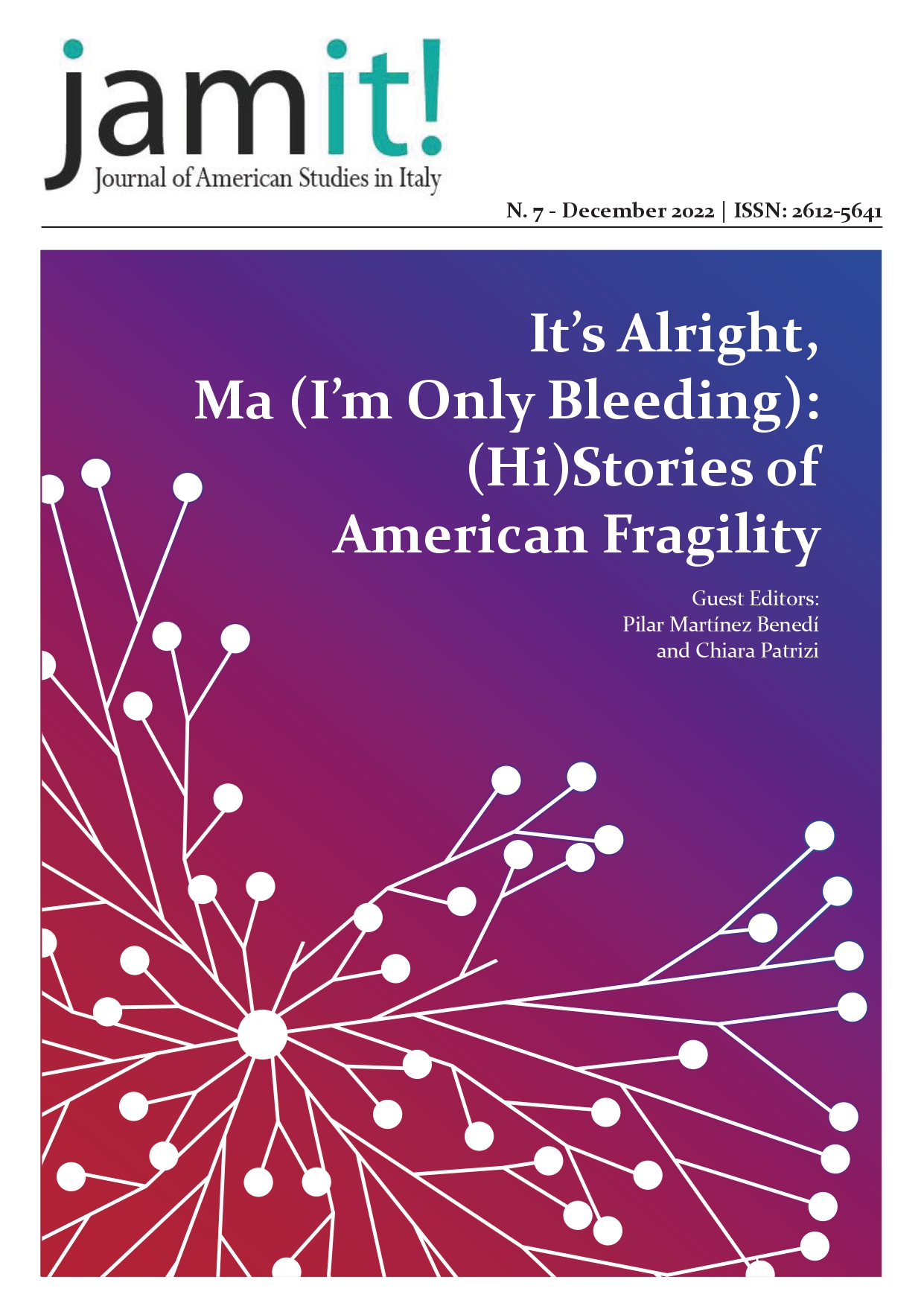No. 7 (2022): It's Alright Ma (I'm Only Bleeding): (Hi)Stories of American Fragility

In 2020, as many Western governments adopted restrictive measures to contain the Covid-19 pandemic, a number of philosophers, sociologists, political and cultural theorists started thinking about such an unprecedented state of affairs in terms of state of exception and biopolitics. If Giorgio Agamben famously inveighed against “the invention of an epidemic” by state power so as to normalize the state of exception as a legitimate “governing paradigm,” others, like Slavoj Žižek, focused on the “reality of the threat.” “Even if life does eventually return to some semblance of normality, it will not be the same normal as the one we experienced before the outbreak,” Žižek claims, as such, “we will have to learn to live a much more fragile life with constant threats.”
In this context, the idea of fragility, traditionally confined to the private sphere, has forcefully entered the public debate. More than ever, neoliberal capitalism is failing to cope with the challenges of the present. Not surprisingly, such inadequacy has been nowhere as glaring as in the US, where the pandemic has exacerbated class, gender, and racial differences. Indeed, far from being oblivious to such differences, Covid-19 hit harder those—such as the lower and working classes, minorities, disabled, women, LGBTQ+ people—who were already living a “fragile life with constant threats”: either because they were more exposed to the disease or because they suffered more from the economic, social, and personal consequences of the pandemic, or both.
Social and personal fragilities have taken on a different meaning in the aftermath of the pandemic. Words and concepts such as loss, grief, alienation, debility, distance, have become part of a broader discourse which includes the personal and the communal as two elements that cannot be separated to understand US and Western society in the present. The interplay between these two elements, and/or between bodily debility and socio-economic fragility, is especially visible in the two global events that marked the year 2020: the Covid-19 pandemic and the rekindling of the BLM movement (worldwide) after the murder of George Floyd. Both, uncannily, under the same cry: I can’t breathe—a cry that calls for bio- and/or necro-political interpretations, but not only.
Covid-19 was a totalizing event—but what about other, non-Covid-related personal sufferings, which often had to be endured in even greater solitude, due to the impossibility of social interaction and physical contact? The intersection of individual and global tragedies is increasingly generating narratives of loss that are at once personal and communal, as in the case of Jesmyn Ward and Claudia Rankine. Similarly, recent BLM activism embraces vulnerability as an instrument of witnessing and protest. Fueled by the recent global traumatic events, over the last year and a half vulnerability and debility have become categories that seem to encompass all aspects of life; the defining features of a society marked by loss—of resources, health, physical contact, time, air to breathe. And since the personal can be political in powerful ways, debility has come to represent a political stance. At the same time, vulnerability, fragility, debility are not solely negative conditions that move us to pity, but may conversely turn into strength, resilience and, to use Ward’s term, “respair”—that return to hope after a period of despair. Either as a sign of suffering and grief, or as a valiant fight against adversity, private fragilities might have a lot to say about the world we live in. As Walt Whitman put it after having witnessed the horrors of the Civil War first-hand, “in the glints of emotion under emergencies . . . we get far profounder clues to the . . . world than all its more formal history” (Specimen Days).
The seventh issue of Jam It! seeks to recuperate that emotional (under)current below the notorious “emergencies” of formal history. We are interested in minor, domestic, intimate scenes and experiences that more often than not remain muted, dampened, by official narratives of public events. We invite contributions from across the disciplines that not only discuss how literature, cultural artifacts, social and political manifestations are registering the ways in which the current situation should foster a meditation on the category of vulnerability/fragility, but also that analyze what does it imply for US society—and Western society at large—that personal grief took place in the midst of communal grief.




